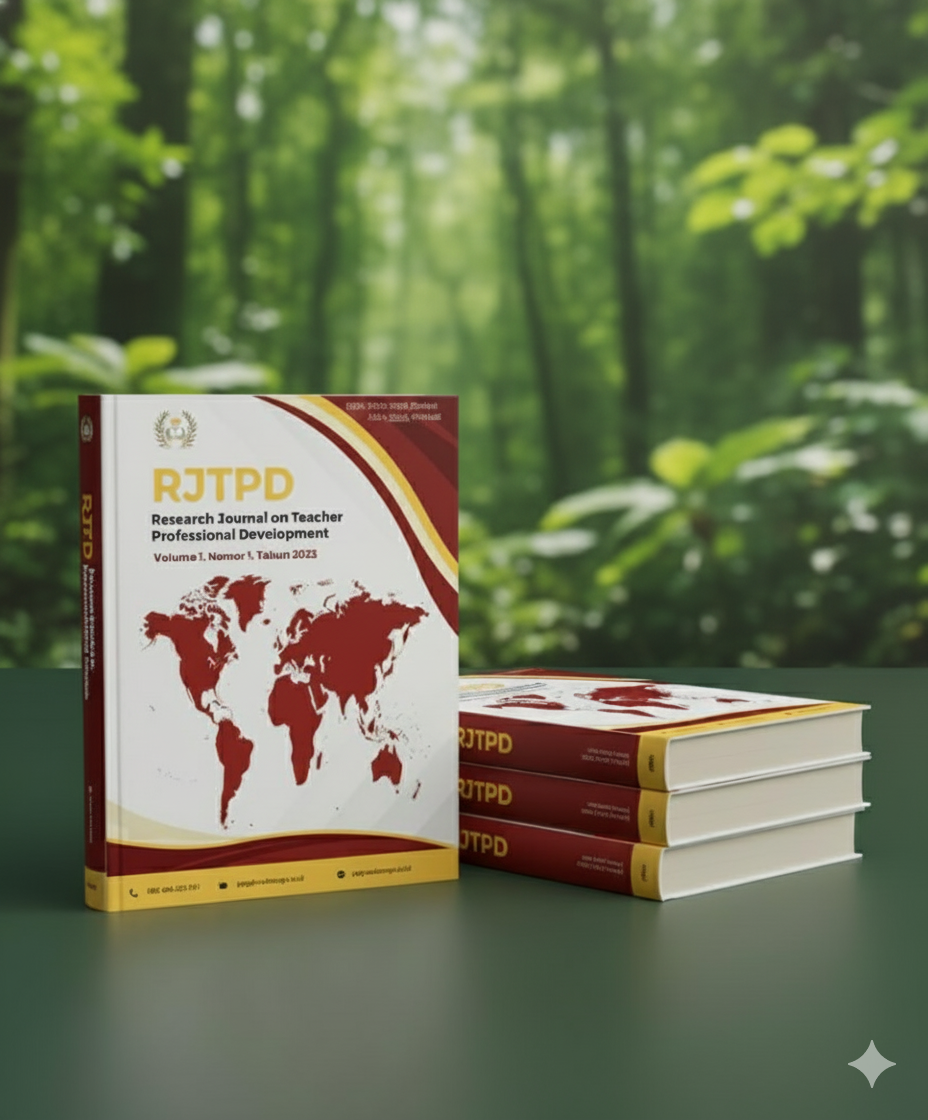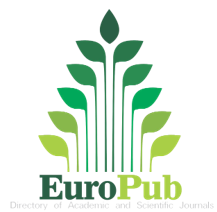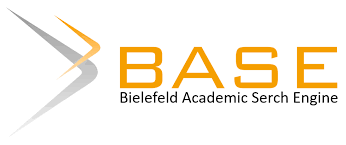Application of Problem Based Learning Model to Improve Learning Outcomes of Al-Qur'an and Hadith, Generous and Miserly Materials at Madrasah Tsanawiyah
DOI:
https://doi.org/10.21580/rjtpd.v2i2.15802Keywords:
problem based learning, learning outcomes. generous, miserly, madrasah tsanawiyahAbstract
This research aims to improve the learning outcomes of the Qur'an, Hadith, generous and miserly material at Madrasah Tsanawiyah. The research discussed that the low learning outcomes of students in the subject of Al-Qur'an Hadith, especially in the material about achieving the pleasure of Allah SWT through generosity and avoiding miserliness, are the main concerns. This phenomenon is caused by the conventional learning method that is often used by teachers, namely the lecture method, which tends to be less interactive and does not involve reciprocity between teachers and students. To overcome this problem, the author applies the Problem Based Learning model in classroom action research conducted in class VII B MTs Darul Hikam Kalirejo Undaan Kudus. This model is designed to increase students' enthusiasm and motivation to learn, which has been proven to be effective in this study. The results of the implementation of the Problem Based Learning model showed a significant increase in students' learning activities and their learning outcomes. In the first cycle, the learning completion rate reached 57.14%, then increased to 67.86% in the second cycle, and reached 89.29% in the third cycle. This increase in learning completeness shows that the Problem Based Learning model not only increases students' motivation and enthusiasm, but also improves their learning outcomes in the Qur'an Hadith material. Thus, the use of the Problem Based Learning model has proven to be effective in improving student learning outcomes in the subject of Al-Qur'an Hadith in class VII B MTs Darul Hikam.Downloads
References
BIBLIOGRAPHY
Abidin, A. M. (2021). Moral Education and Its Relevance to Islamic Education. Journal of Paris Langkis, 2(1), 57.
Baharuddin, H. (2023). Improving Student Learning Outcomes Through PBL in Islamic Religious Education in Class V of Elementary School. Elementary: Journal of Elementary Education Innovation, 3(2), 87.
Diyanti, S. A. N., Akil, A., & Nurlaeli, A. (2023). The Effectiveness of the Problem Based Learning (PBL) Learning Model to Improve the Learning Outcomes of Students of Islamic Religious Education Subject Class VII at Al-Rahmah Junior High School Jakarta. Ansiru PAI: Professional Development of Islamic Religious Education Teachers, 7(2), 461.
Fitri, N., & Idris, M. (2019). The Value of Islamic Education in the Qur'an Surah Luqman Verses 1-19: A Cognitive, Affective, and Psychomotor Review. Al-Musannif, 1(1), 32.
Fitriani, A., Kartini, A., Maulani, M., & Prihantini, P. (2022). The Role of Teachers and Learning Strategies in Meeting the Competencies of 21st Century Students. Tambusai Education Journal, 6(2), 16491-16498.
Hakim, F. R. (2021). The Urgency of Interactive Learning Models in Improving Student Achievement and Learning Motivation in Islamic Religious Education Subjects. Tsamratul Fikri| Journal of Islamic Studies, 15(1), 1-18.
Irnawati, I., Efendi, Y., & Movitaria, M. A. (2021). Application of Problem Based Learning Model to Improve Islamic Religious Education Learning Outcomes for Elementary School Students. Attadrib: Journal of Madrasah Ibtidaiyah Teacher Education, 4(2), 81.
Machali, I. (2022). How to Conduct Classroom Action Research for Teachers. Ijar, 1(2), 12.
Manik, K. (2023). Efforts to Improve Islamic Religious Education Learning Outcomes with PBL. Journal of Cycles: Classroom Action Research (PTK), 1(2), 364.
Meilasari, S., & Yelianti, U. (2020). Study of Problem Based Learning (PBL) Learning Model in Learning in Schools. Bioedusains: Journal of Biology and Science Education, 3(2), 195.
Nurhidayati, T. (2023). A Comparative Study of Qur'an and Hadith Learning in Indonesia and Malaysia: A Literature Study. Urwatul Wutsqo: Journal of Education and Islamic Studies, 12(1), 57.
Pahleviannur, M. R., Mudrikah, S., Mulyono, H., Bano, V. O., Rizqi, M., Syahrul, M., & Aini, K. (2022). Classroom Action Research. Pradina Pustaka.
Primadoniati, A. (2020). The Effect of Problem Based Learning Methods on Improving Learning Outcomes of Islamic Religious Education. Didactica: Journal of Education, 9(1), 77.
Purnamasari, I., Rahmawati, R., Noviani, D., & Hilmin, H. (2023). Transformative Islamic Education. IHSANIKA: Journal of Islamic Religious Education, 1(4), 13.
Rachmad, Y. E., Lase, J. F. E., Zuhriyah, N., Ridho'i, M., Sulaiman, S., Herlina, N. H., & Nurjanah, N. (2024). Character Education Textbook. PT. Sonpedia Publishing Indonesia.
Rodiyah, S. K. (2022). Implementation of Problem Based Learning Methods in Islamic Religious Education Subjects. Journal of Religious and Philosophy Research, 1(1), 109.
Salim, S., Karo-Karo, I. R., & Haidir, H. (2022). Classroom Action Research: Theory and Application for Students, Teachers of General Subjects and Islamic Religious Education in Schools.
Sayekti, N. D. (2022, December). Obstacles and Challenges of Learning the Qur'an Hadith at MTsN 1 Gunung Kidul. In Proceedings Annual Conference on Madrasah Teacher (Vol. 5, pp. 135).
Silmi, B., Fahyuni, E. F., & Astutik, A. P. (2022). Analysis of the Application of the Problem Based Learning Model to the Learning Outcomes of PAI Elementary School Students. AL-MUADDIB: Journal of Educational Studies, 4(2), 135.
Sundari, N., Warrahmah, M., & Nurkholiq, A. (2023). The Purpose of Islamic Education in the Qur'an and Hadith. Indonesia Multidisciplinary Journal, 2(7), 1426.
Suriadi, S., Supriyatno, T., & Adnan, A. (2020). Al-Qur'an Hadits Learning Using Cooperative Learning Strategy. Jurnal Tarbiyatuna, 11(2), 153.
Wardani, D. A. W. (2023). Problem based learning: opens up opportunities for collaboration and skill development of students. Jawa Dwipa, 4(1), 1.
Wijaya, M. F. F., Tarik, A. A., & Nadid, E. (2024). Implementation of Al Islam Kemuhammadiyahan Based on Project Based Learning (PBL) at SD Muhammadiyah 26 and 8 Surabaya. Mas Mansyur Journal, 2(1).
Wildan, A., Ardiansyah, A., & Sudrajat, A. (2023). Development of Problem Based Learning (PBL) Based E-modules on Islamic Religious Education and Ethics at SMK Negeri 4 Malang. Vicratina: Journal of Religious Sciences, 8(5), 1.
Yasminah, Y., & Sahono, B. (2020). The application of the problem-based learning model to increase student participation and learning achievement. Diadik: Scientific Journal of Educational Technology, 10(1), 167.
Downloads
Published
Issue
Section
License
Copyright (c) 2024 siti zulfa

This work is licensed under a Creative Commons Attribution-NonCommercial-ShareAlike 4.0 International License.
The copyright of the received article shall be assigned to the journal as the publisher of the journal. The intended copyright includes the right to publish the article in various forms (including reprints). The journal maintains the publishing rights to the published articles. Authors are allowed to use their articles for any legal purposes deemed necessary without written permission from the journal with an acknowledgment of initial publication to this journal.
















